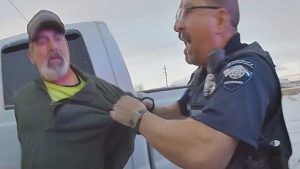by Carla J. Dolce
This is the last in a three-part series on issues underlying the rapidly-growing transition movement.
“It was only two minutes.” That’s what Judy’s son-in-law whined when called on the carpet for leaving his infant son in a closed car while retrieving the family dog from a trendy Dallas doggie daycare. With the temperature at 107º F, two minutes was enough to leave little Steven crying, red, and glistening with perspiration.
Fortunately, Texas’ record-breaking heat didn’t cook Judy’s grandson but the climate legacy he inherits may leave little Steven stewing. Sophisticated analyses of temperature and atmospheric carbon dioxide (CO2) for 400,000 years show a direct correlation: as CO2 increases so does temperature. The data also shows a dramatic spike in atmospheric CO2 over the last century with levels substantially higher than at any time in the past 400,000 years.
On September 1, the Denver Post reported that August 2011 was the hottest August in Denver’s history. Temperature anomaly data from the National Climate Data Center show that average global land temperatures from 2001 through 2010 were 1.1724º F hotter than a century earlier. If you don’t think a 1º F increase is much, consider a few severe weather events that occurred in 2011, events that most climate scientists agree are related to global warming caused primarily by CO2 emissions from burning fossil fuels.
According to a report from NOAA, updated on August 30, 2011 and available at http://www.ncdc.noaa.gov/oa/reports/billionz.html, hurricane Irene (August 20-29, 2011) will rank as the 10th billion-dollar weather/climate event of 2011. This 10th U.S. billion-dollar disaster officially breaks the records, which date back to 1980. Persistent rainfall (nearly 300 percent of normal for the Ohio Valley) and melting snowpack caused historical flooding along the Mississippi River and its tributaries. Estimated losses: $2.0-4.0 billion with at least two deaths. Drought, heatwave, and wildfires in TX, OK, NM, AZ, southern KS, and western AK and LA have caused over $5.0 billion in direct losses (as of August 15) to agriculture, cattle and structures. The May 22-27, 2011 tornado outbreak over central and southern states (MO, TX, OK, KS, AR, GA, TN, VA, KY, IN, IL, OH, WI, MN, PA) caused 177 deaths and over $7.0 billion in damages.
As of August 30, severe weather/climate events for 2011 caused over $36.5 billion in losses and at least 594 deaths. Recession weary communities must cut costs and services, borrow money and dig deep into reserves to cope with the losses. Food shortages and increased food prices aren’t included in the accounting.
If we don’t cook the grandkids, we will certainly leave them stewing. With unprecedented debt and little, if any, cheap oil to feed our oil-dependent economy, our grandkids may not have the resources to cope with climate challenges that, in a few more generations, may be unlike anything humans have experienced since the last ice age. Rather than desperately continuing our fossil-fuel-burning frenzy with coal and natural gas, we can transition to a resilient local economy based on renewable energy resources. Learn more at www.transitionnetwork.org.

Breaking news: Results of Walsenburg Mayor race and recall election
Gary M. Vezzani was elected Walsenburg’s mayor in Tuesday’s special mayoral election/recall vote. Preliminary results announced Tuesday night show that both Nick Vigil in Ward



